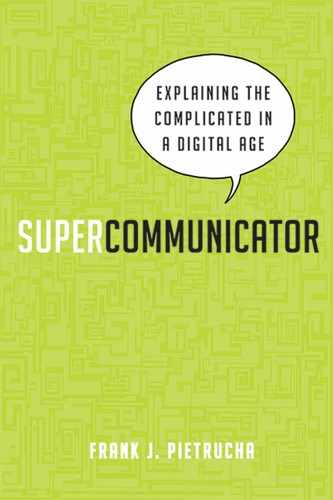Know Thy Audience |
|
Different audiences need different information. I was working in Chile in the early 1990s when I first comprehended how true this is. My first assignment—just a day after arriving in Santiago—was to interview the chief technology officer of a leading telecommunications company for conference topic ideas. By phone before our meeting, I explained to him that I didn't have a background in technology but hoped to find out what “hot” telecommunications topics to include in my program.
The interview was painful. The CTO launched immediately into a detailed discussion of telecommunications technology that I could not comprehend. He attempted to explain to me, in Spanish, not my first language, how ATM works. I heard him utter “Ahhh te eme” and thought ATM…ah, like Automated Teller Machine! Why is this guy talking about cash machines as the next great thing? The Citibank around the corner already has an ATM. Only he wasn't talking banking convenience. He was attempting to explain Asynchronous Transfer Mode. ATM is a network standard used by some Internet service providers (ISPs) on private, long-distance networks.1
I couldn't comprehend how ATM worked primarily because I didn't understand what it was needed for. After pressing him, I learned that ATM was helping in the development of what he finally called “la supercarratera de informacíon.” Ah, Information Superhighway….2 I had read something about that, but this was the early 1990s and we nontechnologists didn't comprehend the big forthcoming changes. Who was I to know that the CTO was attempting to explain to me how the Internet worked? Shouldn't I know what the Internet was supposed to do first before learning about how it works?
The time I spent visiting with the CTO was frustrating. He launched into a technical discussion without explaining to me the big picture of the Internet's potential. He didn't read the expressions on my face that the conversation was over my head, choosing instead to continue explaining minutiae until it became unbearable. The Chilean telecommunications conference was my first professional venture into technology, but this wouldn't be the last time an engineer would jump into details without explaining the big picture to me.
The more information you have about your audience, the greater your chances are for successfully reaching them with a meaningful message. Reading your audience is essential if you want to impart useful information to them. I don't know why the CTO couldn't make his remarks more pertinent to my needs, but I believe even the most technically savvy individuals can better explain complicated subjects to nonspecialists with a bit more awareness and effort.
Many of the communicators I interviewed for this book identified audience awareness as one of the biggest issues they believe prevents their peers from effectively sharing information. It sounds so simple—most people think they know their audiences—but most of us have sat through enough misguided presentations to know that they often don't. Investing the time to carefully consider the needs of the targeted recipients of your PowerPoint, paper, or website is essential for your communication effort to be successful.
I borrowed the title of this section from a quote I got from Dr. Anthony S. Fauci, one of the most quoted scientists in the world, who knows the importance of audience awareness. He articulated his views candidly about this issue during my interview with him. His top recommendation to communicate more effectively is to “know thy audience”; he said it like it's one of the Ten Commandments. The go-to guy for just about every medical malady and contagion known to man says this is the single most important factor when communicating complicated material. He's right—”know thy audience”—if there were a cardinal rule of communication, this would probably be it.
The director of the National Institute of Allergy and Infectious Diseases (NIAID) won't accept a speaking engagement unless he is confident he has enough information on the audience. Fauci, who's advised five different U.S. presidents on emerging health threats as well as their potential danger to entire populations, asks questions about the audience's scientific/medical background, professional responsibilities, personal experience with issues, education level, and other factors—before he starts to prepare his remarks. Finding out about your audience—and developing a clear idea about who they are and what they need—can make a crucial difference in your outreach effort.

